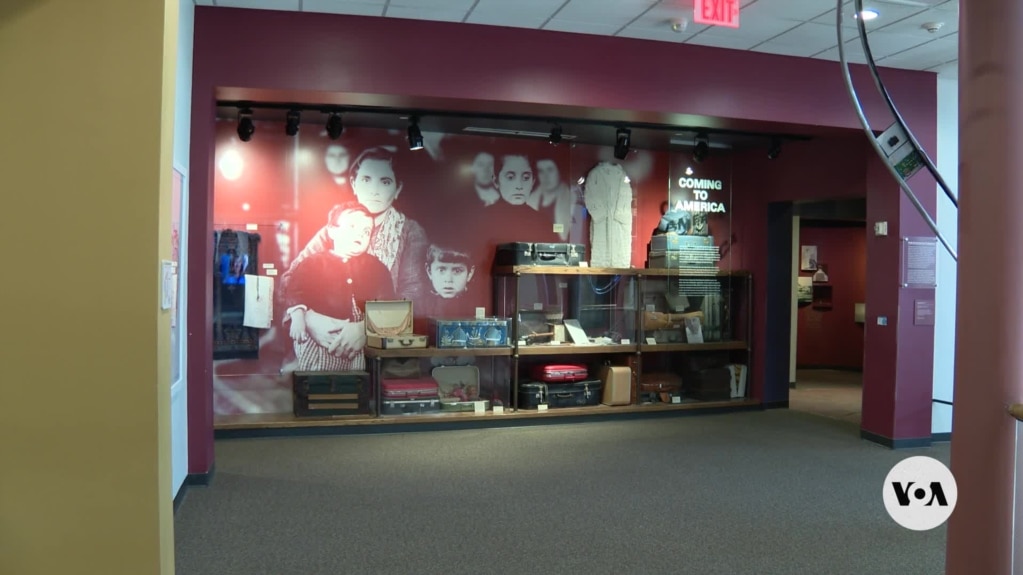Arab Americans have long been a part of life in the United States. A small museum in Dearborn, Michigan is trying to tell their stories.
Called the Arab American National Museum, it has an exhibit about Joseph Haggar. He was a Lebanese immigrant who founded Haggar’s clothing company in 1926.
Diana Abouali is the museum’s director. Abouali said, “He settled in Texas, and he started this pant company that was extremely successful in the 20th century.” She added, “He also revolutionized the way that pants and clothing were mass produced.”
Haggar came up with the word “slacks” to describe pants that people would wear while relaxing. His slacks were worn by many American men including the 36th U.S. president, Lyndon Johnson.
Stories like Haggar’s are important to the museum’s mission to show how Arab Americans have been part of American life since the late 19th century.
“We communicate the American narrative in the voices of Arab Americans. They express their experiences in their own words,” Abouali said. “This provides people with a more authentic and real representation of what it means to be Arab American.”
The museum attempts to share the Arab American experience, including the path to America, home and work life, and service in the U.S. Armed Forces.
The offerings include an exhibit about the hundreds of Syrian and Lebanese immigrants in North Dakota between 1890 and World War I. Thousands of their descendants still live in the north central state today. Another exhibit includes lists of Arab American passengers on the Titanic, which sank in 1912.
The museum also tries to change religious misunderstandings.
“Half of the Arab American community is Christian,” Abouali said. “And in fact, the earlier immigrants, who came in the late 19th century, early 20th century, were predominantly Christian.”
A “wall of fame” shows other well-known Arab Americans. They include reporter Helen Thomas, known as the first woman to end a White House press conference by saying, “Thank you, Mr. President.” Others are actress Kathy Najimy, former U.S. Secretary of Health and Human Services Donna Shalala, and Candace Lightner, who founded Mothers Against Drunk Driving in 1980.
Stories of Arab immigrants are often misunderstood among Americans.
Jasmine Hawamdeh is the director of arts and culture at the American-Arab Anti-Discrimination Committee. She said people often think of “the angry Arab, the terrorist Arab,” or are “afraid of the Arab that comes from abroad.” Another harmful idea, she said, is “the oppressed Arab woman.”
The museum tries to correct these false narratives about Arab Americans. But Abouali said the museum also tries to present Arab Americans as “ourselves.”
Although Arab Americans come from 22 countries, from northern Africa to western Asia, she said once they settle in the U.S., they become as American as they are Arab.
I’m Anna Matteo.

